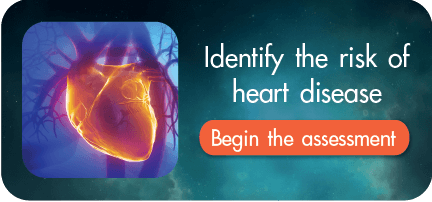Heart Valve Prolapse
The common form of heart valve prolapse is the mitral valve prolapse (MVP). The incidence of MVP cases is 1-2.5% and is prevalent in all age groups and both sexes. In Thailand, there has been no reported and documented figure of the number of MVP cases.
MVP may be an inherited genetic condition (Familial MVP). It is also common in people who are born with connective tissue diseases such as those associated with Marfan’s Syndrome or a bleeding disorder called Von Willebrand’s disease. This causes myxomatous degeneration, a degenerative condition in which mucus accumulates in connective tissues. This results in abnormally greater flexibility and increased length of the heart valve, which does not close properly. This causes an overlap when the valve tries to close. Some parts of the valve may bulge back (prolapsed), into left atrium, causing regurgitation. Regurgitation is minimal in most patients).
The Mitral Valve Prolapse condition is often associated with secundum atrial septal defect (ASD), which is an abnormal opening in the wall separating the left and right upper chambers (atria) of the heart. MVP is also found in patients with left-sided atrioventricular bypass tracts &supraventricular arrhythmias (abnormal heart rhythm).
This condition is usually asymptomatic. The doctors can detect abnormal heart sounds in patients who come for check-up. Echocardiography, can give an accurate diagnosis for MVP.
Patients with MVP with severe MR (Mitral Regurgitation) may develop CHF (congestive heart failure); severe PHT (Pulmonary Hypertension), which is a condition where there is an abnormally high blood pressure in the arteries of the lungs and AF (atrial fibrillation), which is an abnormal heart rhythm. Otherwise MVP patients who are younger than 45 years are at risk of developing ischemic stroke. At the age of 45 years and older, the risk is same as the general population. The fatality rate of patients with Mitral Valve Prolapse is less than one percent annually while the rate of sudden death is less than two percent in patients who have been long term follow-up.
In the absence of any symptoms, no treatment is required. If you experience heart palpitation, due to an abnormal heart rhythm or tightness in the chest, then take medications. These patients may continue to lead a normal life and exercise regularly. Avoid competitive sports and receive guidance and recommendation for the physician. Patients with mitral valve prolapse (and not with mitral valve regurgitation) should get an echocardiogram done every 3-5 years. Patients with mitral valve regurgitation should get an echocardiogram done every year.
In patients with severe mitral regurgitation (MR) or congestive heart failure (CHF), treatment is done through Mitral valve repair surgery or valve replacement surgery. In patients who are paralyzed as a result of ischemic stroke, they should constantly be monitored and given medicines, such as aspirin (ASA) or warfarin.
Complete a risk assessment for genetic conditions at:
